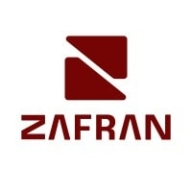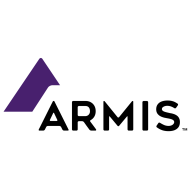


Tenable Security Center and Armis are competing products in the cybersecurity solutions market. Armis offers a comprehensive platform that justifies its higher cost through superior features, whereas Tenable Security Center is more affordable with robust support.
Features: Tenable Security Center focuses on vulnerability management, risk assessment, and compliance reporting. Armis provides advanced asset visibility, unified management for unmanaged and IoT devices, and enhanced anomaly detection using machine learning.
Room for Improvement: Tenable Security Center could improve by expanding its feature set and enhancing scalability. Some users find the user interface lacking in intuitiveness, and integration flexibility can be limited. Armis could benefit from improvements in customer support responsiveness and documentation, as well as offering more flexible pricing options for smaller organizations.
Ease of Deployment and Customer Service: Tenable Security Center generally requires on-premise deployment but integrates well with existing IT infrastructure. Its customer service is known for being prompt and supportive. Armis offers cloud-based deployment, which provides implementation flexibility but has room for improvement in customer service responsiveness.
Pricing and ROI: Tenable Security Center offers a cost-efficient setup with quick ROI due to its targeted approach to vulnerability management. Armis involves a higher initial investment, providing long-term ROI through its extensive functionality and asset visibility, especially in environments with diverse devices.



Zafran Security integrates with existing security tools to identify and mitigate vulnerabilities effectively, proving that most critical vulnerabilities are not exploitable, optimizing threat management.
Zafran Security introduces an innovative operating model for managing security threats and vulnerabilities. By leveraging the threat exposure management platform, it pinpoints and prioritizes exploitable vulnerabilities, reducing risk through immediate remediation. This platform enhances your hybrid cloud security by normalizing vulnerability signals and integrating specific IT context data, such as CVE runtime presence and internet asset reachability, into its analysis. No longer reliant on patch windows, Zafran Security allows you to manage risks actively.
What are the key features of Zafran Security?
What benefits can users expect from Zafran Security?
In industries where security is paramount, such as finance and healthcare, Zafran Security provides invaluable protection by ensuring that only exploitable vulnerabilities are addressed. It allows entities to maintain robust security measures while allocating resources efficiently, fitting seamlessly into existing security strategies.
Armis is a comprehensive cybersecurity solution used for continuous monitoring and threat detection across IT and IoT devices. It excels in spotting vulnerabilities, managing device compliance, and tracking assets to enhance security protocols and network management. Key features include real-time threat detection, comprehensive visibility, and granular risk assessments. Armis boosts organizational productivity by streamlining workflows and enhancing operational accuracy.
Get a risk-based view of your IT, security and compliance posture so you can quickly identify, investigate and prioritize your most critical assets and vulnerabilities.
Managed on-premises and powered by Nessus technology, the Tenable Security Center (formerly Tenable.sc) suite of products provides the industry’s most comprehensive vulnerability coverage with real-time continuous assessment of your network. It’s your complete end-to-end vulnerability management solution.
We monitor all Risk-Based Vulnerability Management reviews to prevent fraudulent reviews and keep review quality high. We do not post reviews by company employees or direct competitors. We validate each review for authenticity via cross-reference with LinkedIn, and personal follow-up with the reviewer when necessary.